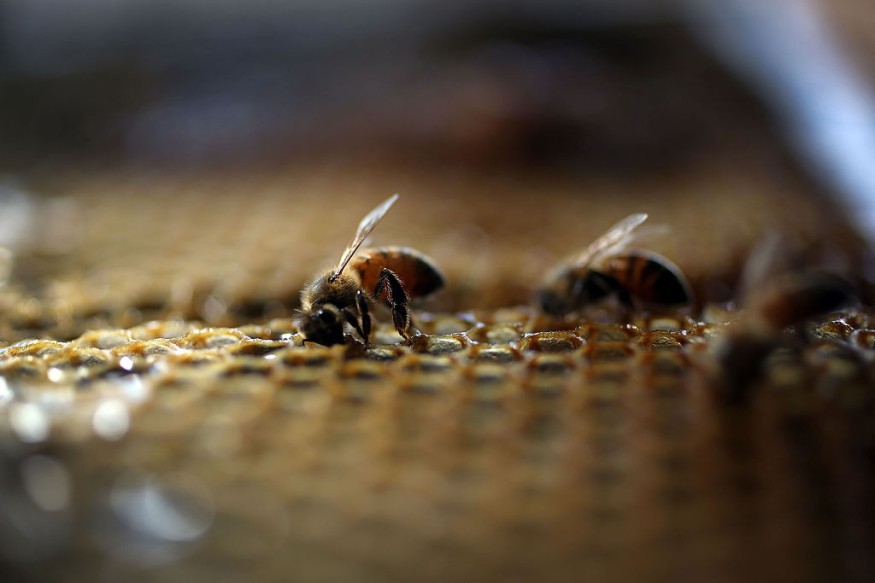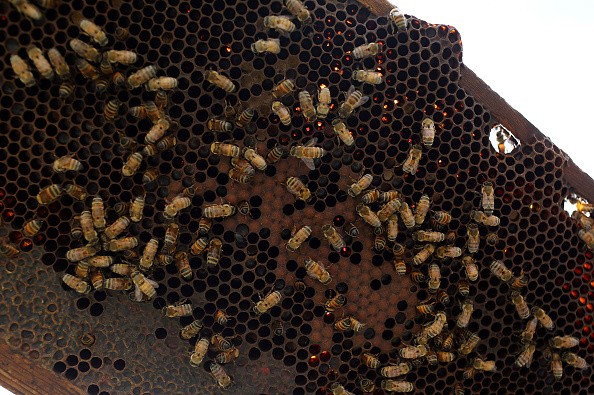In a heat wave, bees are ejaculating themselves to death. This week's extreme heat may cause bees to perish across Europe, causing them to ejaculate violently as they do so.

U.K. Heat
⚠️⚠️🔴 Red Extreme heat warning issued 🔴⚠️⚠️
— Met Office (@metoffice) July 15, 2022
Parts of England on Monday and Tuesday
Latest info 👉 https://t.co/QwDLMg9c70
Stay #WeatherAware ⚠️ pic.twitter.com/YHaYvaGh95
In the U.K., during one of the worst heat waves ever recorded, temperatures recently climbed to 104 degrees Fahrenheit in portions of continental Europe and the Middle East. While this heat is hazardous for humans and animals, it might negatively impact the honey bee colonies on which we rely so heavily.
Bee Incident
According to various accounts that have gone viral, male honey bees might suffer a horrific destiny under intense heat: they would start convulsing, ejaculate violently, and ultimately perish. Half of the male honey bees are thought to perish this way at temperatures exceeding 107 degrees Fahrenheit within six hours, with more delicate ones dying in only two or three hours.
Dr. Alison McAfee, a postdoctoral fellow at the University of British Columbia's Michael Smith Laboratories, stated in a statement that when drones die from shock, they spontaneously ejaculate. They have an extensive endophallus that protrudes from their body and is around the size of their abdomen.
The hives are naturally cooled by the bees, who maintain a temperature of around 95 degrees Fahrenheit. However, the delicate balance is upset during heat waves, and the males start to perish.
Losing Control

According to a study published in the February issue of Communications Biology, these poor male bees often have a higher sensitivity to environmental stresses like temperature. According to the study, this may result from male honey bees being haploid drones, which means they have half as many DNA chromosomes as female worker bees. It was previously believed that this made the men more susceptible to biotic hazards like pesticides, and it now appears that the temperature may also have a greater impact on males.
Although males do not produce honey like female worker bees, they are vital to the hive's social structure.
According to the Communications Biology research authors, "High-quality male honey bees are crucial for enabling appropriate mating of queens, whose lifespan depends on the volume and quality of sperm collected during nuptial flights."
Observing Honey Bees
If honey bee colonies start to fail, there may be serious effects on the economy and biodiversity. As one of the primary pollinators of more than 100 food crop kinds in the United States, honey bees play a crucial role in the agricultural sector. The market for honey worldwide was estimated to be worth $8.58 billion in 2021.
McAfee and a beekeeping colleague named Emily Huxter have been researching ways to keep the hive cool to stop these mass male fatalities. The researchers discovered that covering hives with two-inch polystyrene covers reduced the interior temperature by about 4 degrees Celsius compared to control hives and that feeding syrup to the hives also reduced the temperature by roughly 1 degree.
Increased heat wave frequency brought on by climate change may harm bumblebees as well.
According to Dave Goulson, a bee ecologist and professor of biology at the University of Sussex in the United Kingdom, "their large size and furry coat are adaptations to thriving in cool conditions-bumblebees are most common in temperate, montane, and polar regions, and few can survive in the [Mediterranean]."
Impacts of Climate Change
Modeling indicates that many popular U.K. species won't be able to live in the U.K. under anticipated future climate scenarios because they overheat in hot weather and cannot fly (picture attempting to flap your arms 200 times per second while wearing a fur coat).
The impacts of climate change brought on by carbon dioxide emissions have made heat waves and droughts more frequent.
Related Article : One of the World Largest Mass Extinctions May Have Been Triggered by Volcanic Winter
For similar news, don't forget to follow Nature World News!
© 2026 NatureWorldNews.com All rights reserved. Do not reproduce without permission.





